 W
WMajor-General Henry Richard Abadie was a British Army officer. He was GOC Eastern District at the end of the 19th century and the Lieutenant Governor of Jersey for four years thereafter.
 W
WPrince Albert Victor, Duke of Clarence and Avondale was the eldest child of the Prince and Princess of Wales and grandson of the reigning British monarch, Queen Victoria. From the time of his birth, he was second in the line of succession to the British throne, but did not become king as he died before his father and grandmother.
 W
WHeneage Finch, 5th Earl of Aylesford was a British peer, the eldest son of Heneage Finch, 4th Earl of Aylesford.
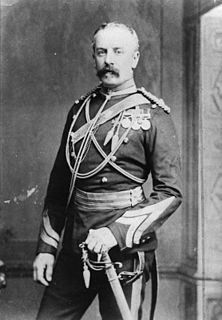 W
WLieutenant-Colonel Lord William Leslie de la Poer Beresford was an Irish soldier and recipient of the Victoria Cross, the highest and most prestigious award for gallantry in the face of the enemy that can be awarded to British and Commonwealth forces.
 W
WGeneral Sir David Graham Muschet "Soarer" Campbell was a cavalry officer of the British Army, amateur sportsman, and later Governor of Malta.
 W
WFrancis Nathaniel Conyngham, 2nd Marquess Conyngham, KP, GCH, PC, styled Lord Francis Conyngham between 1816 and 1824 and Earl of Mount Charles between 1824 and 1832, was an Anglo-Irish soldier, courtier, politician and absentee landlord.
 W
WSir John Cope (1688–1760) was a British soldier, and Whig Member of Parliament, representing three separate constituencies between 1722 and 1741. He is chiefly remembered for his defeat at Prestonpans, the first significant battle of the Jacobite rising of 1745.
 W
WFrederick Temple Hamilton-Temple-Blackwood, 3rd Marquess of Dufferin and Ava DSO, PC, styled Lord Frederick Blackwood between 1888 and 1918, was a British soldier and politician.
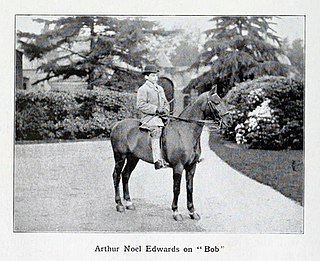 W
WCaptain Arthur Noel Edwards was an English polo player who participated in the 1911 and 1913 International Polo Cup as an alternate.
 W
WGeneral Sir Henry Robert Ferguson Davie, 1st Baronet, known as Henry Ferguson until 1846, of Creedy Park, Sandford, Devon, was Liberal Member of Parliament for Haddington in East Lothian, Scotland, 1847 to 1878 and an army officer.
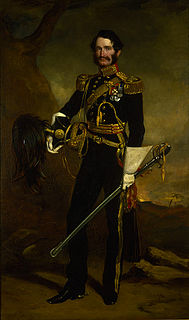 W
WGeneral Sir James Hope Grant, GCB was a British Army officer. He served in the First Opium War, First Anglo-Sikh War, Indian Mutiny of 1857, and Second Opium War.
 W
WSir Walter Raymond Greene, 2nd Baronet, DSO was a British Conservative politician.
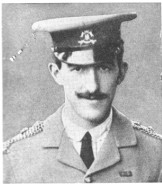 W
WFrancis Octavius Grenfell, VC was an English recipient of the Victoria Cross.
 W
WColonel John Gurwood, British Army was a successful cavalry officer wounded at many battles on several occasions, leaving long-term emotional and physical scars. He was appointed a Companion of the Order of the Bath for his duty to the service. After Waterloo, and the re-settlement of the army on a grateful nation, Gurwood became a writer and historian. A legacy of depression and loneliness led to a tragic and untimely death.
 W
WHenry Hartigan VC was born Drumlea, Enniskillen, County Fermanagh and was an Irish recipient of the Victoria Cross, the highest and most prestigious award for gallantry in the face of the enemy that can be awarded to British and Commonwealth forces.
 W
WJames Johnston was a general in the British Army.
 W
WLieutenant Colonel Alfred Stowell Jones, VC was an English recipient of the Victoria Cross, the highest and most prestigious award for gallantry in the face of the enemy that can be awarded to British and Commonwealth forces.
 W
WMajor-General Sir Hugh McCalmont was an Anglo-Irish soldier, politician, and horseman. He was elected as an Ulster Unionist Member of Parliament for North Antrim in 1895, resigning in 1899 by becoming Steward of the Manor of Northstead.
 W
WField Marshal Richard Molesworth, 3rd Viscount Molesworth, PC (Ire) FRS, styled The Honourable Richard Molesworth from 1716 to 1726, was an Anglo-Irish military officer, politician and nobleman. He served with his regiment at the Battle of Blenheim before being appointed aide-de-camp to the Duke of Marlborough during the War of the Spanish Succession. During the Battle of Ramillies Molesworth offered Marlborough his own horse after Marlborough fell from the saddle. Molesworth then recovered his commander's charger and slipped away: by these actions he saved Marlborough's life. Molesworth went on Lieutenant of the Ordnance in Ireland and was wounded at the Battle of Preston during the Jacobite rising of 1715 before becoming Master-General of the Ordnance in Ireland and then Commander-in-Chief of the Royal Irish Army.
 W
WWyndham Raymond Portal, 1st Viscount Portal,, was a British politician.
 W
WMajor-General George Erroll Prior-Palmer, was a senior British Army officer and business man of Anglo-Irish origins.
 W
WFrancis Leslie Pym, Baron Pym, was a British Conservative politician who served in various positions in the Cabinet in the 1970s and 1980s, including Foreign Secretary, Defence Secretary, Northern Ireland Secretary and Leader of the House of Commons. He was Member of Parliament (MP) for Cambridgeshire from 1961 to 1983 and South East Cambridgeshire from 1983 to 1987, and was made a life peer in 1987.
 W
WLieutenant-General Henry Andrew Sarel (1823–1887) was a British Army officer who became Lieutenant Governor of Guernsey.
 W
WSir James Wallace Sleigh CB (1775–1865) was an officer of the British Army. He rose to be a general, and fought with Wellington at the Battle of Waterloo.
 W
WPrince Francis of Teck, was a brother of the British queen Mary of Teck, wife of King George V.
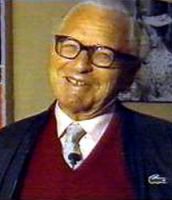 W
WRalph Philip Thomas MC was an English film director. He is perhaps best remembered for directing the Doctor series of films.
 W
WColonel Gerald Hugh Grosvenor, 4th Duke of Westminster was a British landowner and aristocrat.
 W
WColonel Thomas Wildman was a British Army officer during the Napoleonic Wars, a draftsman, and landowner.